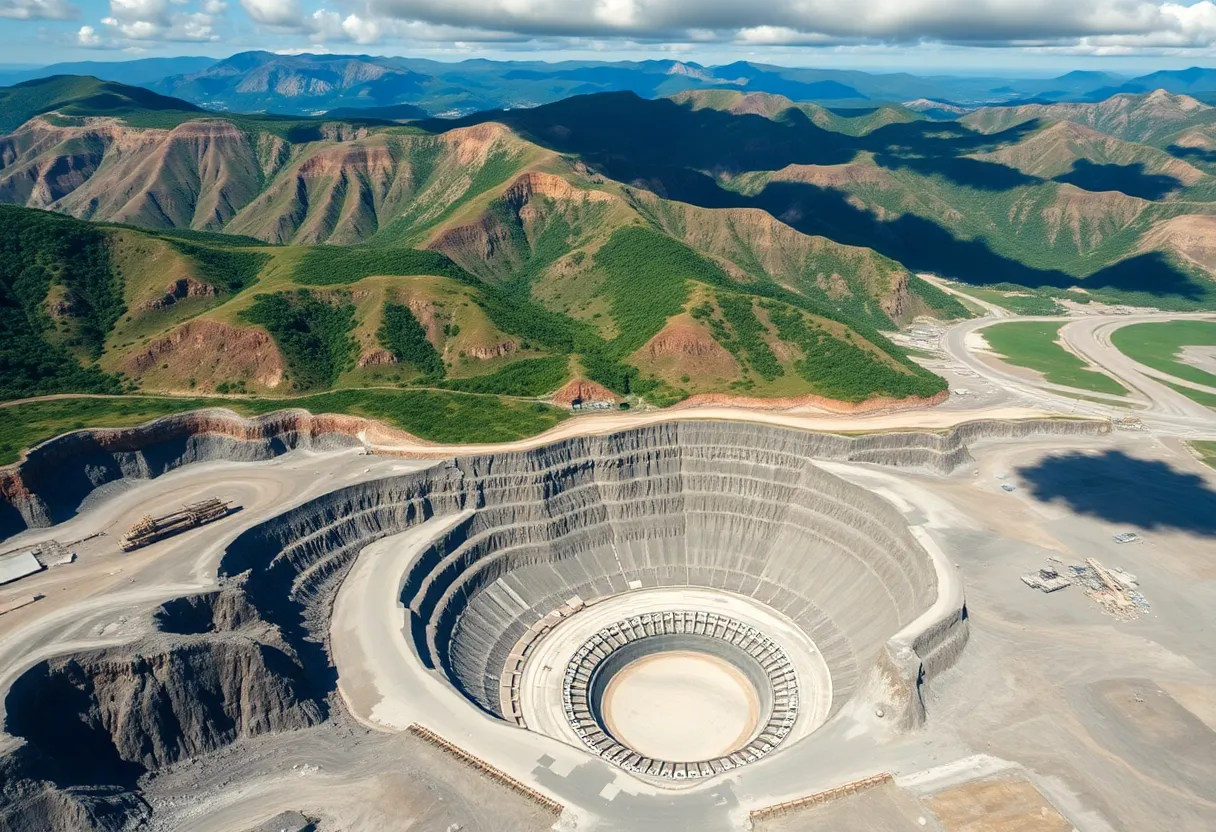News Summary
The Resolution Copper mining project in Arizona is encountering significant delays due to legal challenges and opposition from cultural preservation advocates. A temporary restraining order from the 9th U.S. Circuit Court of Appeals has stalled a crucial land transfer, primarily opposed by the San Carlos Apache Tribe. Despite the setbacks, the project, expected to yield substantial economic benefits, is viewed by stakeholders as just a temporary pause. The ongoing legal battles highlight the conflict between economic development and cultural preservation.
Arizona is facing significant delays in the ongoing Resolution Copper mining project due to legal challenges and opposition from cultural preservation advocates. The development has encountered setbacks that threaten its progress, impacting potential job creation and economic benefits projected for the region.
The Resolution Copper project, a collaboration between mining companies Rio Tinto and BHP, has been in the works for nearly two decades, but recent legal issues have hindered the project. A temporary restraining order issued by the 9th U.S. Circuit Court of Appeals has prevented a land transfer crucial for the mining operations, following strong objections from the San Carlos Apache Tribe, who cite cultural significance and environmental risks.
U.S. President Donald Trump has criticized the court’s decision, stating that it would negatively impact thousands of jobs related to the project. He described the opposition as “Radical Left Activists” who obstruct development essential for American interests, particularly with the increasing demand for copper as a resource for modern technology and renewable energy applications.
Despite these challenges, Resolution Copper has referred to the court’s ruling as merely a “temporary pause,” expressing optimism that the land transfer necessary for the mining activities will eventually be approved. The anticipated project could yield an annual economic impact of approximately $1 billion for Arizona, which is positioned to benefit from the extraction of one of the world’s largest untapped copper sources.
Rio Tinto holds a 55% stake in the joint venture, while BHP owns the remaining 45%. BHP’s CEO has acknowledged the support from the government in promoting U.S. mining initiatives, highlighting the growing demand for copper amid a 20% decline in U.S. copper production in the last decade, which currently accounts for only 5% of the global output.
Building new mines in the United States often faces delays due to an extensive permitting process, a situation that has plagued the Resolution Copper project since legislation enabling the land transfer was proposed around 20 years ago. This legislation was eventually passed as part of a defense spending bill in 2014. A U.S. district judge had previously ruled in favor of the economic arguments for the mine, rejecting attempts to halt the land transfer brought by tribes and environmentalist groups.
Cultural and environmental concerns have been a driving force behind the San Carlos Apache Tribe’s legal battles. The tribe has consistently opposed the mining project, arguing it would desecrate sacred sites and harm the surrounding ecosystem, with fears surrounding potential environmental hazards such as dam breaches or pipeline failures associated with the planned mining infrastructure.
The Apache Stronghold, an advocacy group, has been instrumental in the legal resistance against the mine, advocating for the protection of Oak Flat, a location of great cultural and historical importance to the tribe. Recently, the Supreme Court declined to hear an appeal from Apache Stronghold, thereby upholding lower court decisions favoring the land exchange needed for the mining operations.
The mine’s construction requires innovative solutions to manage extreme underground temperatures, which can soar to 175°F (79°C). As the legal skirmishes continue, the Resolution Copper project stands at an intersection of economic development and cultural preservation, illustrating the complexities that often accompany resource extraction initiatives in the United States.
Deeper Dive: News & Info About This Topic
- CNBC: Trump Slams Anti-American Pushback Over Arizona Project
- Wikipedia: Copper Mining
- Wall Street Journal: Trump Backs Giant Arizona Copper Project After Court Setback
- Google Search: Arizona Copper Mining
- AP News: Arizona Oak Flat Copper Mining
- Google Scholar: Resolution Copper Project
- Law.com: Mayer Brown, Sullivan & Cromwell Act on Mitsubishi Corp’s $600M Stake Acquisition
- Encyclopedia Britannica: Copper
- Bloomberg: Resolution Copper Mine Inches Closer as Trump Backs Arizona Project
- Google News: Resolution Copper Project

Author: STAFF HERE PHOENIX WRITER
The PHOENIX STAFF WRITER represents the experienced team at HEREPhoenix.com, your go-to source for actionable local news and information in Phoenix, Maricopa County, and beyond. Specializing in "news you can use," we cover essential topics like product reviews for personal and business needs, local business directories, politics, real estate trends, neighborhood insights, and state news affecting the area—with deep expertise drawn from years of dedicated reporting and strong community input, including local press releases and business updates. We deliver top reporting on high-value events such as the Waste Management Phoenix Open, Cactus League Spring Training, and Arizona State Fair. Our coverage extends to key organizations like the Greater Phoenix Chamber of Commerce and Visit Phoenix, plus leading businesses in technology and healthcare that power the local economy such as Intel and Banner Health. As part of the broader HERE network, including HERETucson.com, we provide comprehensive, credible insights into Arizona's dynamic landscape.





